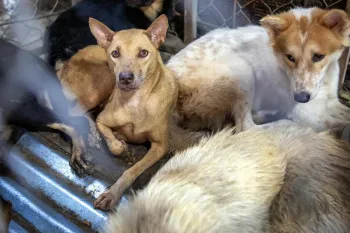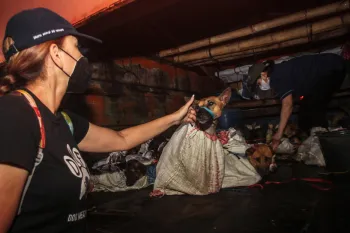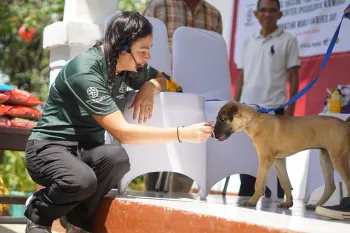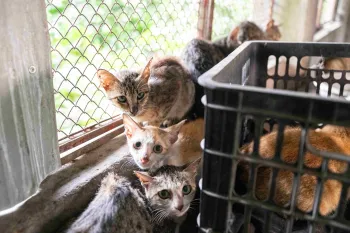Sixteen dogs are now safe and recovering well, after being saved by our team from a dog meat restaurant and slaughterhouse in Dong Nai, Viet Nam. Our rescuers found them cowering in the corners of their small wire cages. Two of them were still wearing collars, signs of their former lives as beloved pets.
A Facebook livestream over the weekend captured the inspiring moments the dogs were comforted and brought to safety. Many of the dogs had matted fur, tick infestations, skin conditions and infected eyes. The team transported them to a temporary facility where these traumatized animals are receiving much-needed veterinary care, including being neutered and vaccinated against rabies and distemper. When they have recovered, they will be assessed for local adoption into loving homes.
It’s the beginning of a new life for them, as well as for the owner of the facility, who was determined to leave the dog meat business altogether due to the stress and guilt he felt. “This work doesn’t make me happy at all. I don’t want to kill these animals anymore, it makes me feel bad,” Mr. Cuong said. Humane Society International has provided a grant to help him start a new business selling paint and gas cylinders in his community, which he said will be “a much more peaceful business.”
This transition of livelihoods was made possible by our Models for Change program, which was set up in Viet Nam in 2022 after successfully operating in South Korea since 2015.
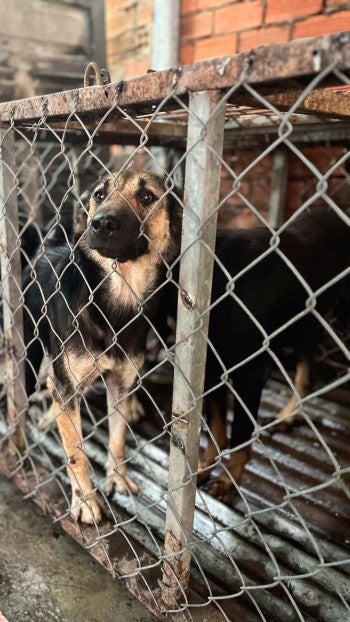
An Tran/HSI
The cruelties of the dog meat trade start even before the dogs arrive at slaughterhouses. Dogs are caught using tasers, poison bait and pincers. Many of the dogs are taken from the streets or are stolen family pets. The dogs are then tightly packed in cages on trucks and can travel for hours or even days without food and water, suffering from exhaustion, dehydration, suffocation, heatstroke or even death before they reach the slaughter facilities. The transportation of dogs also poses a public health risk due to the spread of rabies, as well as other diseases.
This rescue represents just one aspect of our work to improve the circumstances of animals and elevate the human-animal bond all over the world. When we first began our global efforts to advance animal protection campaigns outside the U.S., it was exactly this kind of collaborative change for animals that we hoped to see.
This rescue was made possible thanks to a collaboration between our international team and the Dong Nai Department of Animal Health. Following this rescue, our Viet Nam team held a meeting with DAH officials from both Dong Nai and Thai Nguyen provinces, both of which are provinces we’re targeting to end the trade. Local leaders agreed to propose a directive to ensure the strong enforcement of laws and regulations on rabies, a step that would make it more difficult for the dog and cat meat trades to operate.
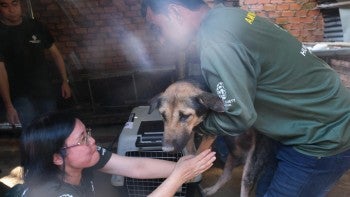
Nhan Tran/AP Images for HSI
Most people in Viet Nam don’t eat dog meat. A 2023 Nielsen opinion poll found that around one-quarter of the population (24%) had consumed dog meat in the last year, and a majority (68%) of respondents supported banning the dog meat trade.
We are honored to lead this effort to eradicate the cruelty of this industry wherever it exists. We will never stop pursuing a more humane future for the animals caught up in the dog and cat meat trades, and for the people who want to leave this appalling business behind.
Follow Kitty Block @HSUSKittyBlock.
